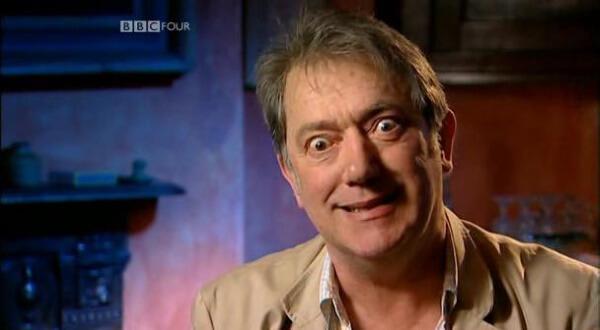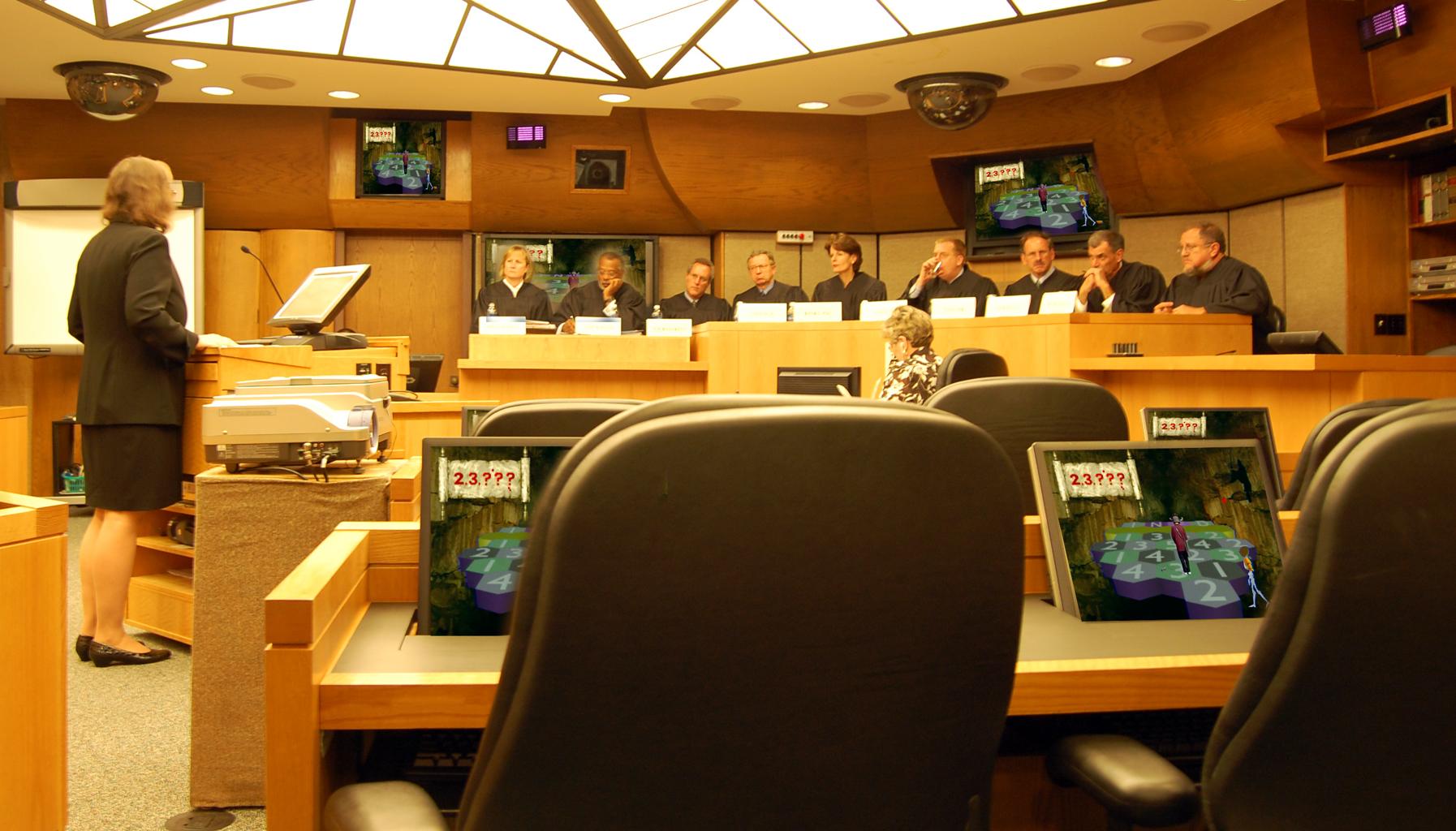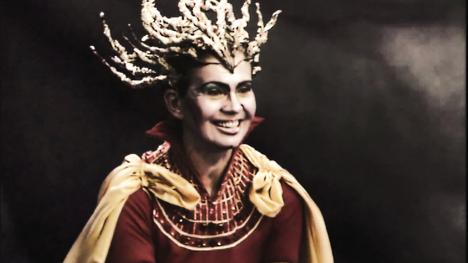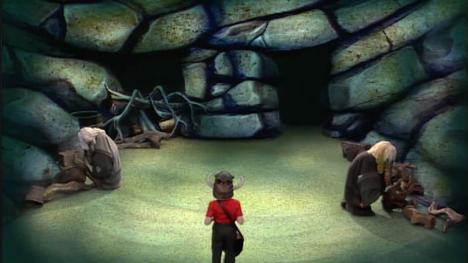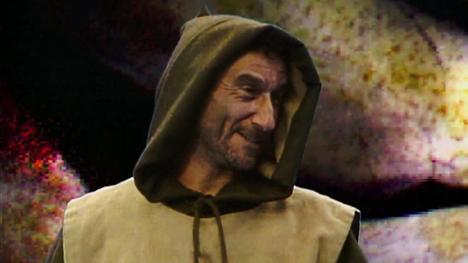Knightmare appeared in the 1980s instalment of Children's TV on Trial, broadcast in May 2007 on BBC Four. The feature included interviews with Tim Child and Hugo Myatt.
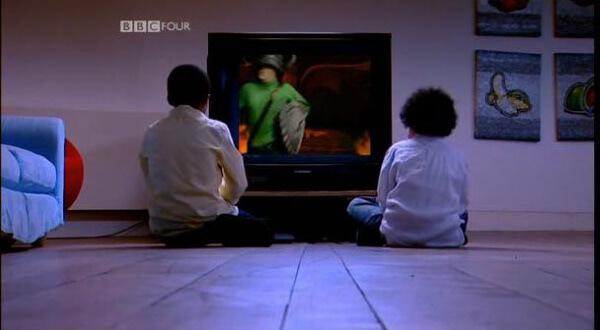
The six-episode Children's TV on Trial series was a decade-by-decade survey of children's television from the 1950s through to the 2000s.
Children's programmes were grouped thematically to highlight their relevance to the contemporary culture of each decade.
Today's younger generation was also given the chance to cast its verdict on children's television of the past.
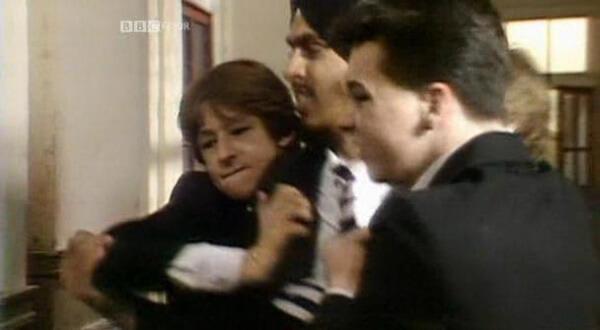
At the end of the 1980s instalment, Knightmare bridged a gap between the use of computer technology and the emergence of darker themes through children's television of the 80s.
The documentary featured children's involvement in politics and Grange Hill's portrayal of the taboo realities of school culture, with drugs, bullying and violence.
This was followed by Knightmare's use of cutting-edge technology to create a macabre virtual-reality environment designed to be terrifying - a zeitgeist of its age.
"We scared an awful lot of children"
There is a glint in the eye of Knightmare creator Tim Child as he explained how a computerised dungeon could create a convincing level of fear.
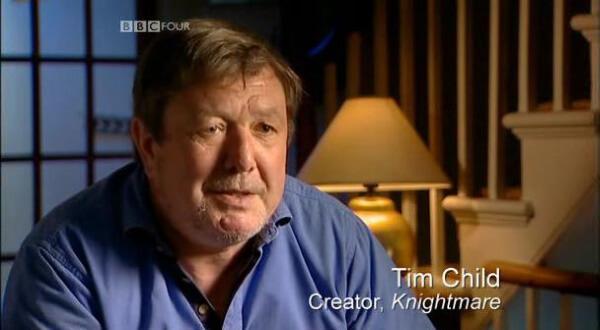
"Some of the gameplay was really quite complex," he says. "It was always challenging, and also it was quite scary."
A dungeon is a dark, dank, dangerous place. It's not the sort of place you would send six-year-olds in. Even in fantasy terms with drawn environments, it's pretty convincing. We scared an awful lot of children. But they made for great gameplay once they'd been scared.
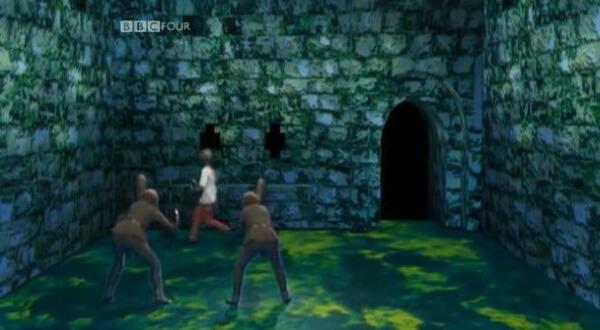
Whitehouse saga
Surprisingly, the show did not reference Mary Whitehouse's controversial (and later withdrawn) objections to the show.
The indefatigable moralist had criticised Knightmare after being provoked by journalists. She later retracted her comments after watching the show.
But the attempt to historicise Knightmare was a brave move to include factions of children's television that reacted to, or were inspired by, the cultural politics of its era.
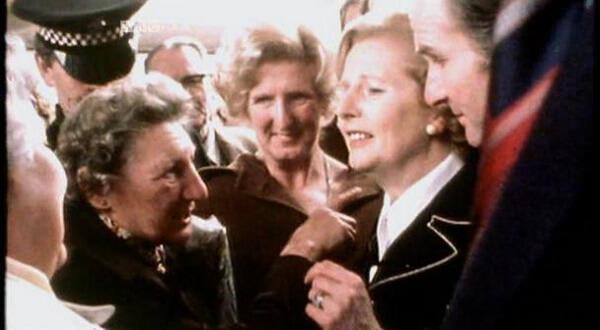
DownloadWatch a clip (15.62MB)
Transcript
Narrator [Mark Halliley]: In the 80s, computer games began to emerge as an important player in the world of children's entertainment. As an answer to games like Dungeons & Dragons, ITV broadcast Knightmare, described as the world's first virtual-reality TV show. It was presented by Dungeon Master, Hugo Wyatt [sic].
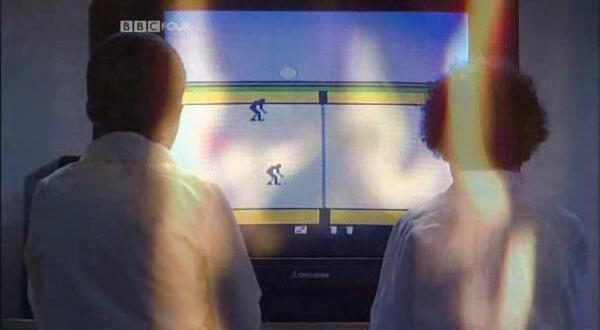
Tim Child: [on Hugo Myatt] At the time, in the late 80s and early 90s, in any school playground in Britain, he was probably the most imitated person. There would be kids going around saying 'Ooh, nasty', which is his famous catchphrase for whenever a team died in the game.
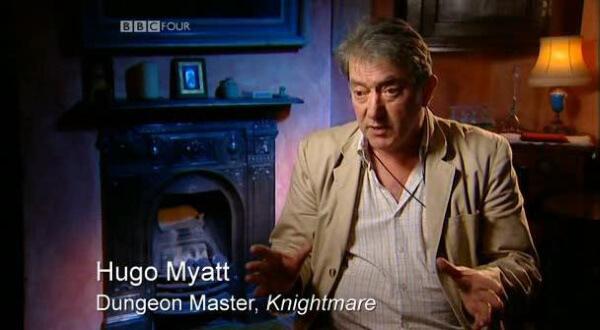
Hugo Myatt: The set I was in was real. It was a real set. And the advisors went into that, and so did the dungeoneer originally, so they never, ever saw the blue set.
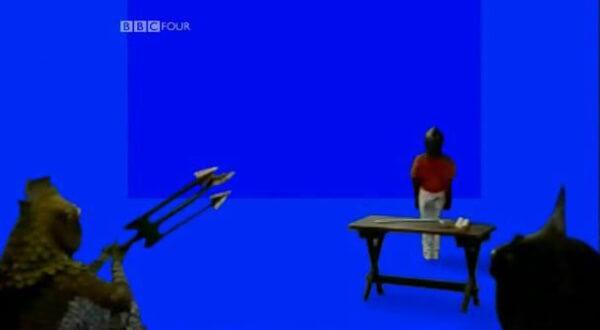
Narrator: The lone dungeoneer was blindfolded by a large helmet and set into a blue-screen set. Through computer graphics, a hazard-filled fantasy world was created around him. Three teammates in a separate room directed the dungeoneer through an imaginary maze in search of treasure.
Hugo Myatt: The technical aspect of Knightmare was quite incredible. I didn't know how it was done, or what was going to happen very often, and things would appear that would absolutely amaze me.

Tim Child: Some of the gameplay was really quite complex. It was always challenging, and also, it was quite scary. A dungeon is a dark, dank, dangerous place. It's not the sort of place you would send six-year-olds in. Even in fantasy terms with drawn environments, it's pretty convincing. We scared an awful lot of children. But they made for great gameplay once they'd been scared.
Hugo Myatt: You get them calling "GoLeftGoLeftGoRightGoLeft!" The poor thing is out there, going "well what -#- do you want!?" We didn't actually get -#-, but near enough!
[Series 4 Team 2 falls in the Corridor of Blades.]
Hugo Myatt: [with reverb] Ooooh, NASTY!
